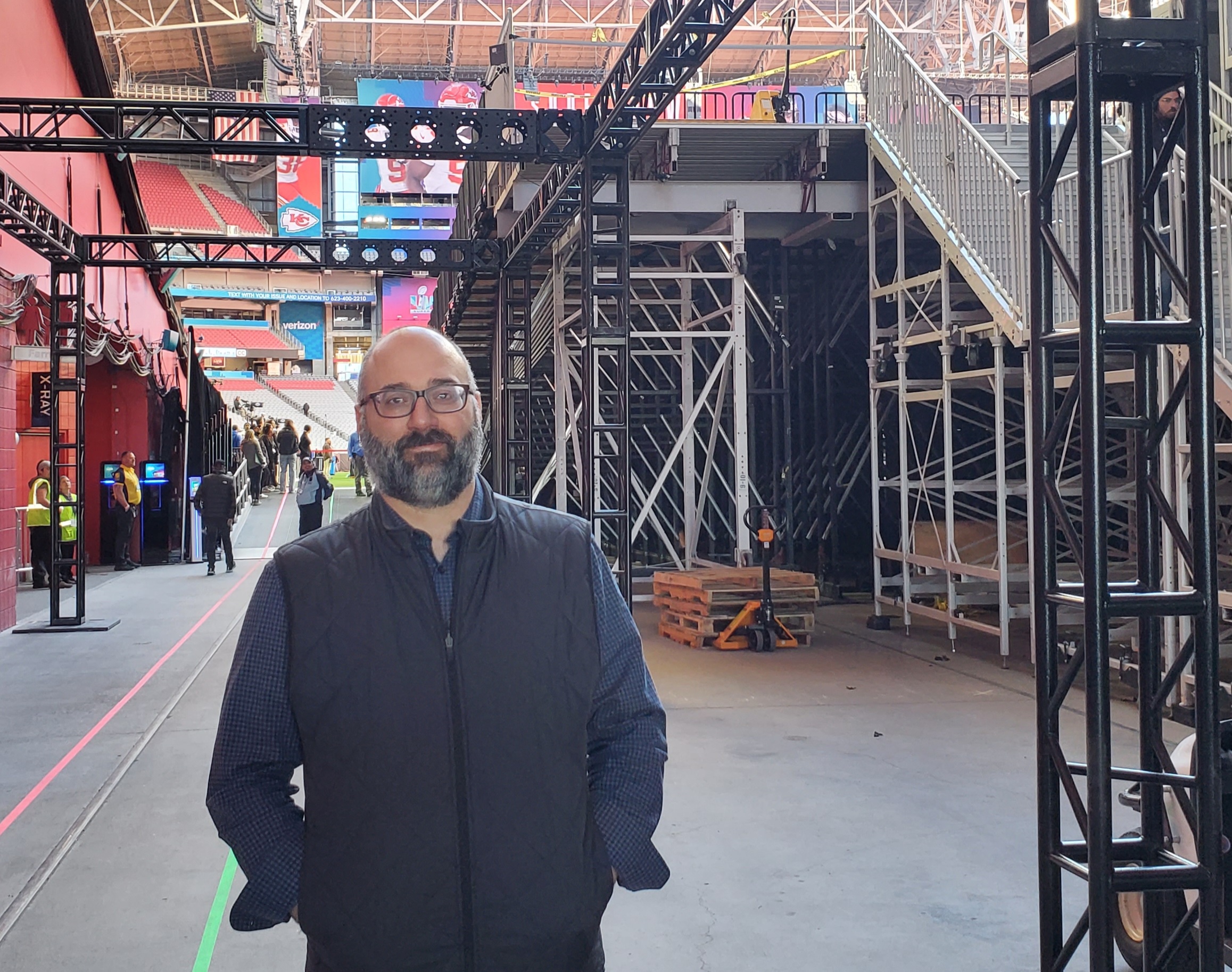Live From Super Bowl LVII: NFL’s Chris Vassallo on Power, Communications, and the Need for a Plan
The goal is to be ready to provide support and be able to move fast
Super Bowl LVII is a bit of reunion for NFL Director, Stadium Infrastructure and Football Technology, Chris Vassallo and his team. Typically, on any given Sunday, game-day crews are spread across the country, but, on this particular Sunday, almost all are in Phoenix. Vassallo spent a few minutes with SVG Editorial Director Ken Kerschbaumer to discuss Super Bowl LVII and big events’ expanded need for wireless communications, power, and everything in between.
How have the responsibilities for you changed here compared with regular game days?
Obviously, there are a lot of different people involved, but the whole campus expanded. From the football-tech perspective, we obviously have more people onsite and more people who are part of decision processes, and there is no “back to New York” for replay because everyone is here. Even the football-ops people who are scattered throughout the country during the regular season are here. So we spend a lot of time going over communication plans and power plans and restart plans, making sure things like UPS [universal power supply] are being powered.
I was just talking to the game officials and reminding them that we are here and they don’t have to go far to find us. We have backup equipment, we have testing plans, and we’ve even given them the ability to talk throughout the hallway if they need to, which they can’t do in a regular-season game.
We’ll also test out the coach-communications beltpacks to make sure everything works from the booth to the field and then to each other on the field. We also finished up coach-to-player testing. Right now, we’re in game-ready status for a lot of different services and are just making sure all the little things are checked.
Ultimately, our responsibility from here through the end of the game is to just be ready to provide support and be able to move fast. But everything relies on our communication plan: clear, concise, what’s the problem, and then making sure there is a good plan to resolve the problem.
What are the advantages of having replay here instead of in New York?
One thing we don’t have to worry about like we do during a normal game is our connectivity out of the building and our circuit that goes from any building back to New York. Sometimes there’s someone who’s jack-hammering somewhere, and they hit a circuit, right? With everyone here, we don’t have to worry about any of that for those critical services. We have some stuff that does leave the building, but it’s nothing game-critical; it’s monitoring and some other stuff.
But there’s no place where we have a team doing something or we have football technology that we don’t have a person nearby to help.
The other day, the NFL and Verizon announced a deal to put 5G in every stadium for coach communications. What will that mean to operations?
We won’t be using 5G for this game, but we’ve worked closely with Verizon and have already been installing their equipment. It was tested at the international games, and they’ve worked a lot just to make sure it works fine. They just needed to understand everything about our unique system: there aren’t a lot of Verizon customers that need something like a coach-to-coach system.
You have mentioned that Riedel Head of Professional Services Dan Bakies will play a key role. What will he be in charge of?
We have a tight frequency time slot in the 1.9 GHz DECT band, so there’s a little bit of a dance that Dan’s going to help manage between the Halftime Show and Van Wagner, and there are other things as well, especially with officiating. Dan will act as our replay field tech and will be at the replay cart. He will monitor the game officials and be able to help us quickly troubleshoot anything that comes up. He is also in contact with any Riedel Bolero DECT user; if something happens — like the game officials are working on the field before halftime comes on — he can manage those situations.

